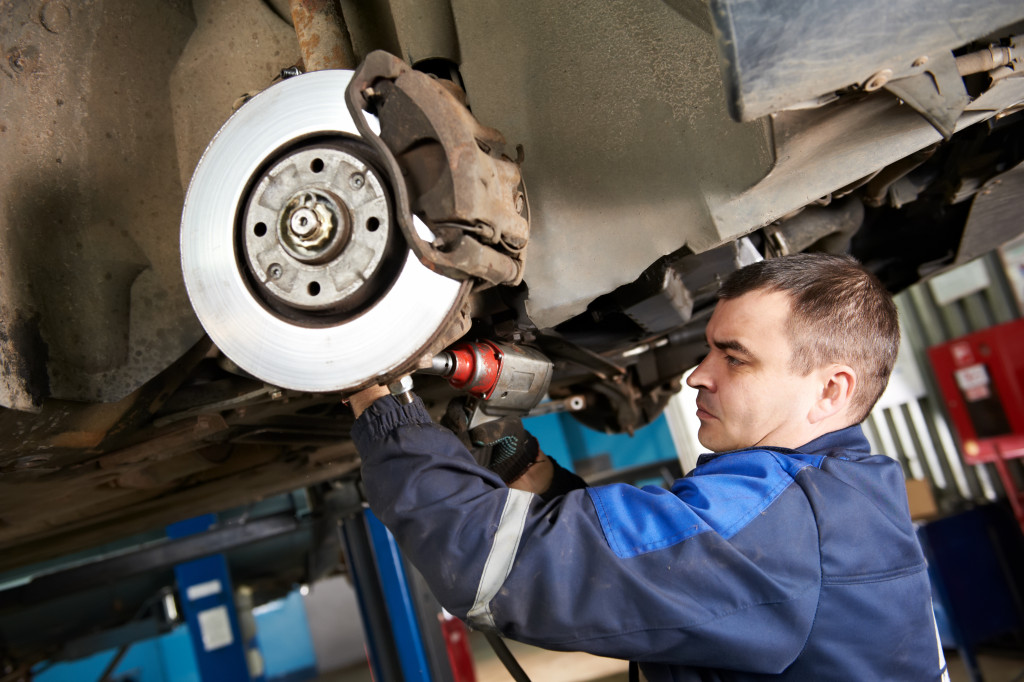- Schedule regular maintenance checks, including tire rotations, brake service, and oil changes.
- Keep vehicles clean to prevent the accumulation of dirt and debris.
- Train drivers on how to drive safely and be mindful of vehicle maintenance.
- Create a replacement schedule for fleet vehicles.
- Keep accurate records of maintenance schedules, repairs, and other costs.
If you’re running a hotel or a resort, you know how important it is to have a fleet of vehicles that can meet your guests’ transportation needs. Your hotel’s vehicle fleet, from shuttle buses to limousines, should be reliable, safe, and comfortable.
But, maintaining a fleet of vehicles can be challenging, especially if you’re not well-versed in vehicle maintenance. This article will provide some tips on keeping your hotel’s vehicle fleet, so they’re always ready to hit the road.
Schedule Regular Maintenance Checks
Maintaining vehicles is just as crucial as owning them in the first place. Without proper maintenance, your hotel vehicle fleet won’t last long and your business will lose revenue because of it. Therefore, it’s crucial to schedule regular maintenance checks. This would include the following:
Tire rotations
Tire rotations are a part of routine vehicle maintenance that involves moving the tires from one position to another. This is important because it helps to even out the wear on the tires and extend their lifespan. Tire rotations help improve the vehicle’s handling and reduce the risk of blowouts.
Generally, tires should be rotated every six months or every 6,000 to 8,000 miles, whichever comes first. Regular tire rotations will save you money in the long run because you won’t have to replace your tires as frequently.
Brake service

Brake service is another critical component of regular vehicle maintenance that is often overlooked. It’s easy to forget about your brakes until you hear a strange noise or feel a change in the pedal’s resistance.
But regular brake services are essential because they ensure your brakes function correctly and can stop the vehicle when needed. Also, delaying brake service can lead to costly repairs or total brake failure. A good rule of thumb is to have your brakes inspected every 12,000 miles or every 12 months.
Oil changes
Changing your vehicle’s oil is one of the most crucial components of routine maintenance. Motor oil is your ‘scar lifeblood; without it, the engine could seize up. Regular oil changes will help your engine run smoothly and efficiently, improving gas mileage. Additionally, clean motor oil helps to reduce engine wear and tear, prolonging the life of your vehicle. Typically, changing your oil every 5,000 to 7,500 miles is recommended, depending on the type of oil and your driving habits.
Check other fluids
It’s also essential to check and maintain other fluids in your vehicle, such as transmission, power steering, and brake. These fluids can break down over time and cause severe problems if left unchecked. Check your car manufacturer’s guidelines to know when to change these fluids. A mechanic can also check their condition and levels.
Keep Your Vehicles Clean
Keeping your vehicles clean is not just about aesthetics; it’s vital to maintaining your fleet. Dirt and debris can accumulate on your vehicle’s exterior and interior, causing damage over time. Regular cleaning can prevent the accumulation of dirt and debris, keeping your cars in top condition and prolonging their lifespan.
Train Your Drivers

Your drivers also play a significant role in maintaining your vehicle fleet. Training them on how to drive safely and be mindful of vehicle maintenance is essential. For instance, they should be aware of any unusual noises or vibrations while going and report them immediately to the maintenance team. Proper training will help your drivers be proactive in maintenance and contribute to keeping your fleet in top shape.
Create a Replacement Schedule
The age and mileage of a vehicle determine its maintenance needs and useful life. It’s essential to have a replacement schedule for your fleet to ensure that you’re not using vehicles beyond their useful life. Replacing vehicles on time prevents unexpected breakdowns, reduces maintenance costs, and enhances customer satisfaction.
Keep Records
Lastly, keeping accurate records is crucial to maintaining your hotel’s vehicle fleet. Papers should include vehicle maintenance schedules, repairs, and other costs. Keeping records help you track the costs associated with maintaining your fleet and can also be proof of maintenance compliance in case of accidents or incidents.
Final Thoughts
Maintaining a fleet of vehicles requires a lot of effort, but the benefits are well worth it. You can ensure that your hotel’s vehicle fleet is always in top condition by implementing regular maintenance checks, keeping your vehicles clean, training your drivers, creating a replacement schedule, and keeping accurate records. A well-maintained fleet will contribute to your guests’ satisfaction and save you money in the long run.

